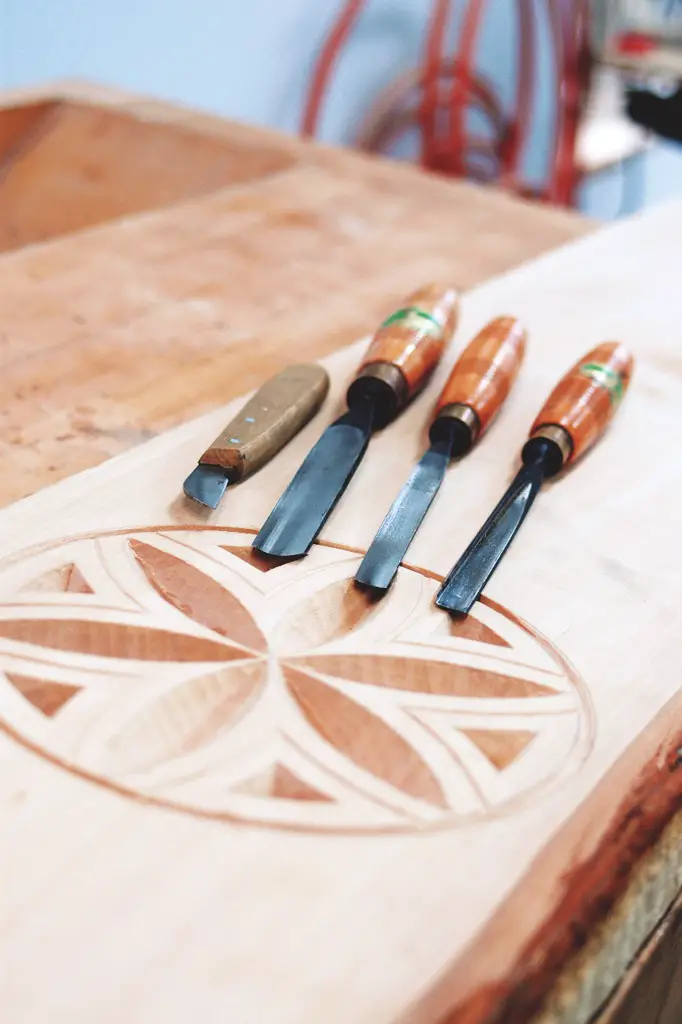
- Reading Time = 4 minutes
We’ve all heard the word “craftsmanship”, but it’s one of those terms that needs more clarity if the idea is to be of any use. I’ve thought a lot about this, and perhaps the ideas you’ll read here will prove useful in your own work
What Is Craftsmanship?
This is the best working definition I’ve come up with:
“Craftsmanship is the extent to which a person aims towards excellence in any venture involving hands-on workmanship.”
It’s a product of skill, knowledge, experience, patience and effort. And while craftsmanship pays off for the people in your life who enjoy your furniture, renovations and vehicles that run reliably, it also seems to me that craftsmanship pays off most of all for the craftsman. At least that’s what I’ve noticed. Why else would the happiest, most stable and satisfied people I know all pursue some kind of craftsmanship seriously? Why is it that the failing, frazzled and frustrated people I see seem to have no place in their lives for making or fixing things well?
Craftsmanship for the Maker

The craftsmanship I’m talking about here – the kind that sustains the craftsman on the inside – is possible given any budget and any time constraints. It’s not about having the best materials to work with, an open-ended schedule nor an amazing project idea. These things are often out of our control and hardly ever happen in the real world anyway. You can’t count on them. No, in my experience, the craftsmanship that sustains comes from a belief that human beings were made for a better world than the one we find ourselves in.
I don’t have enough faith to believe that we’re all just an accidental collection of molecules on a ball of rock hurtling through space. There’s such a thing as absolute right and wrong, and there is such a thing as good work and bad work. When I build things with craftsmanship in mind, I’m aiming to bring one tiny part of my world into better alignment with the perfect world of beauty, peace and permanence that I see in my mind’s eye. In 40+ years of working seriously with my hands, I’ve found nothing more inwardly sustaining than this one goal – to work towards the kind of ideal world of beauty, quality and kindness I wish I lived in all the time.

If all this sounds wispy and sensitive, I agree. But isn’t it also true that many times in life it’s the little things that matter most – especially the little things in your mind and heart? These are the places where the battle for joy and sanity are won or lost. Sure, if you’re a working person, you’ve got tasks to complete and deadlines to meet. If you’re retired, you’ll be a rare person indeed if you don’t have health concerns, concerns about your kids, the state of the world or what happens when this short life of ours is over.
We all have to struggle with challenging realities and insufficient time or resources or both. All the more reason to aim for excellence to the extent that your circumstances allow it. Don’t do it primarily for others (as much as they’ll appreciate it), do it for something larger. When you walk away from the tools at the end of a Saturday in the shop, for instance, you can take pride and satisfaction knowing that the work you did that day is as good as you could make it. Not necessarily as cheap as you can make it, nor as fast. You’ve launched something worthwhile into history, and perhaps brought some tiny part of the world closer to the ideal.
The Craftsmanship Decision

I’ve found that craftsmanship comes down to a decision, and in one way every craftsmanship decision is unique because no two craftsmanship situations are exactly alike. But in another way, every craftsmanship decision is the same because they all come down to the same choice: “Will I do what’s easier, cheaper and faster, or will I do what moves this project a little closer to the ideal of beauty, durability and efficiency?” The reason your answer to this question matters is because sustained success and inner satisfaction takes something beyond just the practical. At least for me. It takes a craftsman’s heart.
If you have no idea what I’m talking about here, please excuse me. Not everyone has the drive of a craftsmanship inside. I get that, and that’s fine. All I know for sure is that when I look around and see people who are reliably happy, stable and accomplished, more often than not I see people who make it a point to pursue some version of the discipline of craftsmanship in some or several parts of their lives. Some of us were made to make things, and that’s something that should never be ignored.
 Did you find this article useful? I hope so. Please consider helping me cover the cost of creating and publishing content like this. Click the “buy me a coffee” button below for a fast, safe and simple way to make a contribution. Thank you very much for helping to keep this website up and running.
Did you find this article useful? I hope so. Please consider helping me cover the cost of creating and publishing content like this. Click the “buy me a coffee” button below for a fast, safe and simple way to make a contribution. Thank you very much for helping to keep this website up and running.
– Steve Maxwell


